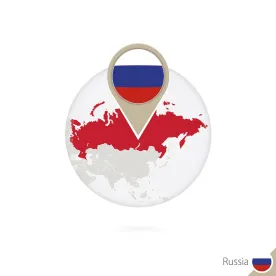Major sanctions and export control restrictions against Russia are near, and companies doing business with Russia must be prepared.
Sanctions Bill Nearing a Vote in the U.S. Senate
With news of Russia’s continued proliferation of armed forces at the border of Ukraine, the United States is poised to impose additional economic sanctions against Russia that one Pentagon spokesperson described as unlike any other sanctions adopted to date. Even without a physical invasion, new Russia sanctions are likely in the pipeline. The U.S. Senate Committee on Foreign Relations is preparing a bipartisan sanctions bill which Chair Bob Menendez described as crippling to Russia’s economy if implemented. The Senate is currently debating the bill and could pass it as early as this week.
The original Senate bill was introduced by Menendez as the Defending Ukraine Sovereignty Act of 2022. After the President makes a determination that the Government of Russia is “engaged in or knowingly supporting a significant escalation in hostilities” which “has the aim or effect of undermining, overthrowing, or dismantling the Government of Ukraine, occupying territory of Ukraine, or interfering with the sovereignty or territorial integrity of Ukraine,” the bill requires the President to impose significant sanctions, including:
-
sanctions on 12 specified Russian officials (including Vladimir Putin himself as President of the Russian Federation);
-
sanctions on at least three major Russian financial institutions, and possibly additional major institutions or subsidiaries and successors thereof;
-
additional sanctions on certain providers of specialized financial messaging services to those sanctioned Russian financial institutions if they fail to cease the provision of services;
-
a complete prohibition on “all transactions by United States persons involving the sovereign debt of the Government of the Russian Federation”;
-
sanctions on entities “responsible for the planning, construction, or operation of the Nord Stream 2 pipeline,” as well as their corporate officers; and
-
sanctions on foreign persons to be identified by the President that are involved in certain Russian extractive industries, such as oil and gas, coal mining, mineral extraction, and more.
The sanctions measures outlined in the bill include visa revocation and ineligibility/inadmissibility to the United States, as well as a U.S. block and prohibition of all transactions in property and interests in property of sanctioned persons. The bill also provides for defense articles and specified military assistance to Ukraine, as well as strengthening support for Ukraine in the region.
The exact sanctions which may be included in the final Senate bill are still uncertain. Updates from the Senate detail some differences that are currently being negotiated. For example, it is reported Republicans and Democrats are deeply debating whether or not to impose sanctions related to the Nord Stream 2 pipeline.
House Bill with New Sanctions Also Introduced
A similar bill was introduced in the House of Representatives—the Putin Accountability Act, with a few differences. For example, the bill seeks to designate Russia a state sponsor of terrorism. However, the many similarities between the Senate and House versions (including sanctions on financial institutions and financial messaging service providers, key Russian elites, and dealings in Russian debt) echo the likelihood that severe sanctions could be imminent. We will continue to track the bills.
Potential New Export Controls on Certain U.S. Foreign Direct Products Bound for Russia
While the sanctions bills being considered focus on Russian oligarchs and elites, as well as financial institutions and key Russian industries, the White House also announced during a briefing that it is contemplating export control restrictions which could affect Russian producers and consumers. According to the White House briefing, the export control would deny to Russia downstream products that are critical to its own ambitions to develop high-tech capabilities in aerospace and defense, lasers and sensors, maritime, artificial intelligence, robotics, quantum and other areas. The White House claimed that these controls would have minimal impact on global supply chains because they focus on Russia only. Some observers compare the proposed export controls to those that were previously used against Huawei in China. Known as the Foreign Direct Product Rule, the controls impact items that are the direct product of certain U.S. technology or software, or produced with U.S. equipment.
How Can Companies Prepare Now?
Multinational companies must stay alert to these changes. As we await further actions by Congress or the White House, companies should review their Russian operations, sales or contacts which could be affected by the currently proposed sanctions and export controls. Companies can also take action by looking at their screening processes to ensure that Russian transactions and counterparties are subject to the appropriate level of scrutiny given the significant increase in risk with respect to Russian dealings. If a modified version of the Foreign Direct Product Rule is imposed, it will be necessary for exporters (including non-U.S. companies producing goods abroad with U.S. technology, software or equipment) to understand whether their items may be covered by the restrictions, and to ensure proper controls are in place if so.




 />i
/>i
